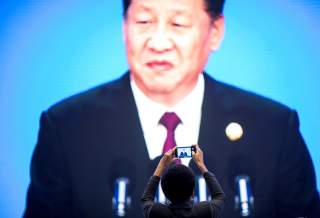The Chinese Century? An Early Appraisal.
Hint: it's not all going as Beijing wants. This is part one of a two-part series.
Diplomacy and Alliances
America’s alliances and partnerships have long allowed it to maintain a favorable balance of power in Asia, prevented the region from being subsumed into a rival’s sphere of influence, and served as a bulwark against any power’s expansionist aims.
If there is any area in which Trump has been consistent, it is in his antipathy to the American alliance system. On the campaign trail and in office, Trump has regularly questioned America’s alliances, calling the North Atlantic Treaty Organization obsolete and repeatedly saying that South Korea and Japan should “pay up” or the United States would withdraw its troops. He has even insulted allies like Australia, as happened in his notorious phone call with then Prime Minister Malcolm Turnbull. Rather than working in concert with partners such as Japan, Trump has imposed steel tariffs on Tokyo and refused to provide them an exemption despite close relations and common interests. Following his summit with North Korean dictator Kim Jong-un—and apparently without consulting with South Korea or even his own Pentagon—Trump announced that the United States would unilaterally suspend military exercises and stated that he would like to remove American troops from South Korea.
And yet for all of this, allies have not yet walked away. In fact, the demand for an American presence in the region has gone up. Since 2012, Australia has hosted a rotational presence of U.S. Marines, and discussions are now beginning about whether Australia might host American bombers in Darwin and ships out of Perth. South Korea’s President Moon Jae-in’s actions have reflected public opinion in his country, where a staggering 96 percent of South Koreans describe the U.S.-South Korea alliance as necessary, despite calls from some within his cabinet to distance Seoul from Washington. In Tokyo, despite disappointment over U.S. tariffs, calls for a robust American presence in Asia remain unabated, with Japan’s defense minister saying that America’s military presence is “vital” for East Asian security.
In fact, in the absence of American leadership, most of America’s traditional partners in Asia are starting, however haltingly, to do more, not less. Diplomatic engagement between Australia, Japan, and India have improved, and there is a growing amount of attention and resources focused on both Southeast Asia and the South Pacific. Military budgets have started to inch upwards, and military cooperation and presence in contested areas such as the South China Sea have increased. Some of these actions arise out of concern about waning American attention and staying power. But they also grow from a sense that taking more forceful measures to shore up the rules-based order is in the self-interest of each of these countries. This can be seen in the official and public declarations of New Zealand, Australia, India, Japan, and Singapore among others. Asia is a uniquely diverse region, but what links the strategic interests of the overwhelming majority of nations is a common desire to resist domination, coercion, and intimidation. So even as Trump’s foreign policy has heightened concerns of American steadiness, it has not yet produced anything resembling true decoupling between Washington and its allies. Instead, it has resulted in regional partners doing more—both with and without the United States.
Meanwhile, recent Chinese actions have not exactly strengthened calls for it to assume a leading place in the regional order. Despite Xi Jinping’s desire to present China as “a new option for other countries” seeking alternatives to Western democracy, Beijing’s heavy-handed actions have undermined much of their other diplomatic efforts. Across Asia, there is a growing wariness of Beijing’s intentions. BRI is now viewed increasingly with suspicion in the region, stoking concerns that China is embarking upon “a new version of colonialism,” in the words of Malaysia’s Prime Minister Mahathir Mohamad. Furthermore, China’s more forceful economic actions taken in retaliation against countries who have offended China have also backfired. Beijing has made its displeasure known—and felt. It slowed imports of Philippine produce and restricted access to its traditional fishing grounds. Beijing curbed the number of Chinese tourists in South Korea and shuttered Korean stores in China. Finally, China threatened to cut the number of Chinese students studying in Australia. Additionally, the flagrant efforts by China’s Communist Party to influence the domestic politics of Australia, New Zealand, and Singapore have led to a rising chorus of regional observers concerned that the price of economic engagement with China is political compliance.
While few in the region want to exclude or contain China, many have begun to conclude that the price of closer diplomatic ties with Beijing might be more than they are willing to sustain. In short, despite genuine exasperation in the region with some of the American president’s pronouncements and actions, U.S. allies in Asia have sought to find ways to deepen their relationships with the United States and with each other.
(This is the first article of a two-part series, the second one can be read here.)
Charles Edel is senior fellow at the U.S. Studies Centre at the University of Sydney and a former Member of the Secretary of State’s Policy Planning Staff.
Siddharth Mohandas is director of research at The Asia Group and former Principal Deputy Director of the Secretary of State’s Policy Planning Staff.
Image: Reuters

